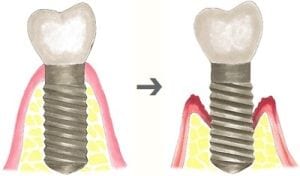Myth Buster #1...Braces are just for kids.
I) We can move teeth on children as well as senior citizens
II) We have options of Invisalign clear aligners as well as clear ceramic brackets and tooth colored wires in additional to the traditional metal brackets.
Myth Buster #2... I am used to my smile, and braces are just to make my teeth look nice.
I) Yes braces will make your teeth look nice and that is a plus. Here are 20 reasons you should straighten your teeth. Did you know that people with straight teeth and nice smiles are judged by others to be:
1) Smarter2) Happier
3) More Successful
4) More Attractive
5) Healthier
6) More Popular
II) People with proper aligned teeth will actually be healthier and spend less money at the dentist in the long run. They will have less:
7) Tooth Wear8) Chipping of front teeth
9) Breaking of back teeth
10) Gum Disease
11) Cavities
12) Root Canals
13) Missing Teeth
14) Gum Recession and Sensitivity
15) Food Packing and Bad Breath
16) Dental Visits and Emergencies
17) Implants, Crowns, Bridges, Partials, Dentures, Dental Surgery
18) Lower medical and dental bills
19) TMJ issues
20) Medical Issues Related to Poor Digestion
Myth Buster #3... Invisalign is only for simple adult cases.
1) Invisalign works great on simple cases where only a few aligners are needed and is the preferred method of making minor corrections.
2) Invisalign has evolved quite a bit and works well on complicated cases.
3) Invisalign Teen with special features works well on teenagers.
Call Today
815 459 2202
Dr. Neal answers all of your questions about Braces and Invisalign at Crystal Lake Dental Associates.
Your comments are welcome
drneal.comdrneal.com


